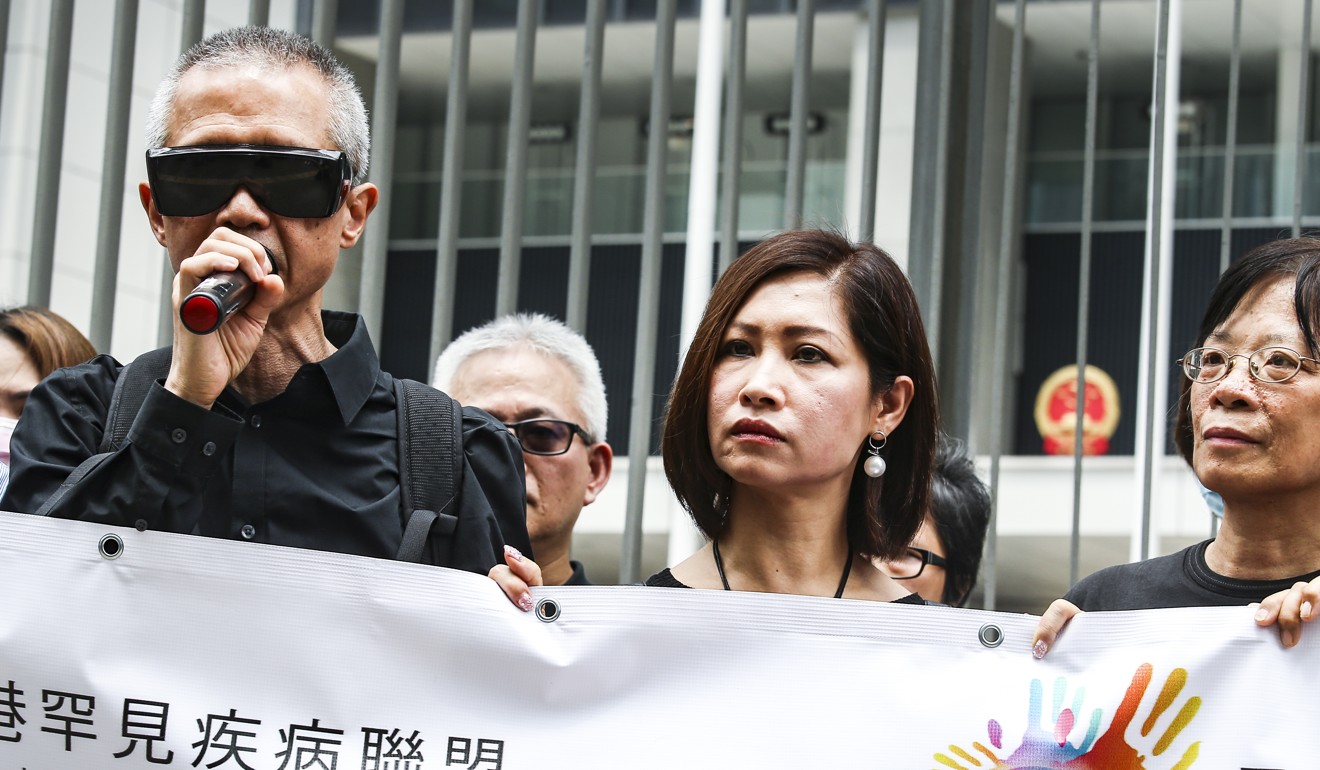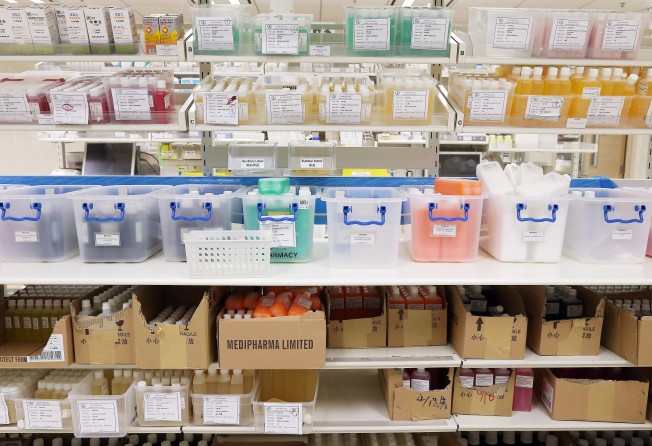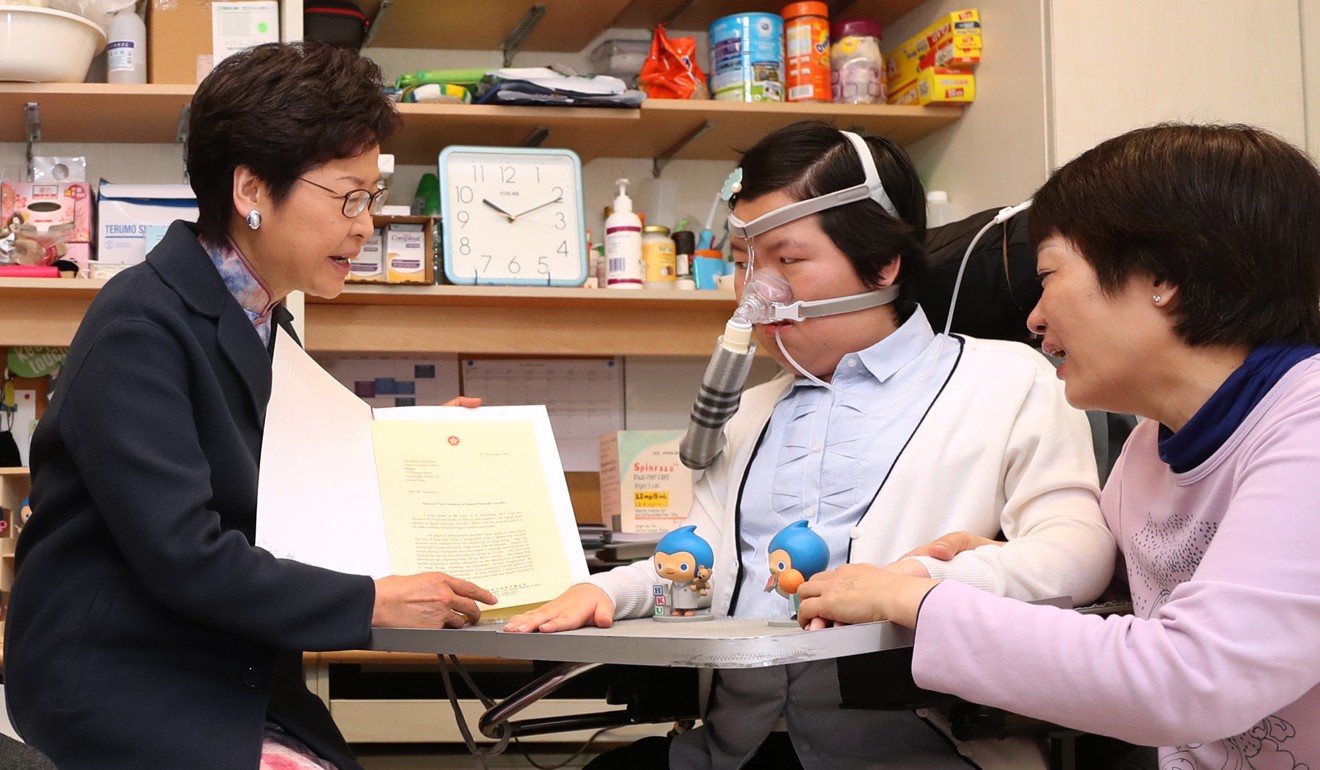
Free drugs for Hong Kong patients with rare lung disease, after two years
Sufferers will still have to cover the first 24 months of the pricey medicine, under patients’ group’s new plan. But one patient and a specialist welcome the end of long-term financial uncertainty

Hongkongers suffering from a rare and deadly lung disease could get free drugs under a scheme to be launched next week, but only after paying for the first two years.
The scheme, initiated by the Hong Kong Alliance for Rare Diseases in partnership with other groups, targets patients suffering from idiopathic pulmonary fibrosis. An estimated 350 people in the city have the rare condition, which damages lung function and makes breathing difficult.
Nintedanib, one of two drugs for idiopathic pulmonary fibrosis, was registered in Hong Kong in 2016. But it has not been included in the Hospital Authority’s drug formulary, its list of medicines that the government can subsidise. Patients currently have to pay about HK$20,000 (US$2,550) a month for nintedanib.
Three non-profit groups, respiratory specialists, and a pharmaceutical company are also involved in the scheme, to be launched next Thursday.
Tsang Kin-ping, president of the alliance, said the scheme would help patients get a handle on their finances, knowing that they will not be shelling out for the drug for the rest of their lives.
“Patients can [then] estimate how much they have to spend on their treatment,” he said.

Patients with the disease who are prescribed nintedanib by a public doctor or a private specialist in respiratory medicine would be eligible to join the scheme. But people eligible for civil service medical and dental benefits will be excluded.
Patients would receive free drugs after paying for the first two years. The free medication would run until the patients’ doctor changes the prescription.
Public patients earning less than HK$40,000 a month would have the treatment cost waived for five months during the two-year period, meaning they would still have to pay about HK$380,000 before receiving free treatment.
While private patients can get the drugs from their own specialists, public patients have to bring the prescription and visit any one of the designated community pharmacies under the three charities involved, namely the Hong Kong Pharmaceutical Care Foundation, HKSKH Lady MacLehose Centre and St James’ Settlement.
An idiopathic pulmonary fibrosis patient surnamed Lee said he has considered selling his flat to pay for treatment. He welcomed the scheme.
“I feel very happy,” Lee said. “Taking this drug in the past used to be like [throwing money into] a bottomless pit.”
Dr Wan Chi-kin, a specialist in respiratory medicine, said the five-year survival rate for patients after being diagnosed with the disease is about 20 per cent, lower than that for some cancers such as breast or colorectal cancer.

With the help of nintedanib, patients’ decline in lung function, likelihood of acute exacerbation and mortality rate could be reduced, Wan said. But without medication, patients could only rely on pulmonary rehabilitation exercise or oxygen therapy to ease their symptoms.
Taking this drug in the past used to be like [throwing money into] a bottomless pit
A spokesman for the Hospital Authority said it would closely monitor the latest clinical and research developments and review the drug formulary as usual.
The plight of people with rare diseases has been in the spotlight recently after Josy Chow Pui-shan, who suffers from spinal muscular atrophy (SMA), appealed to the government to import a new drug to treat her rare condition. Chief Executive Carrie Lam Cheng Yuet-ngor acted on the appeal last week by saying the drug, nusinersen, would arrive in the city in two months. There are about 85 SMA patients in Hong Kong.